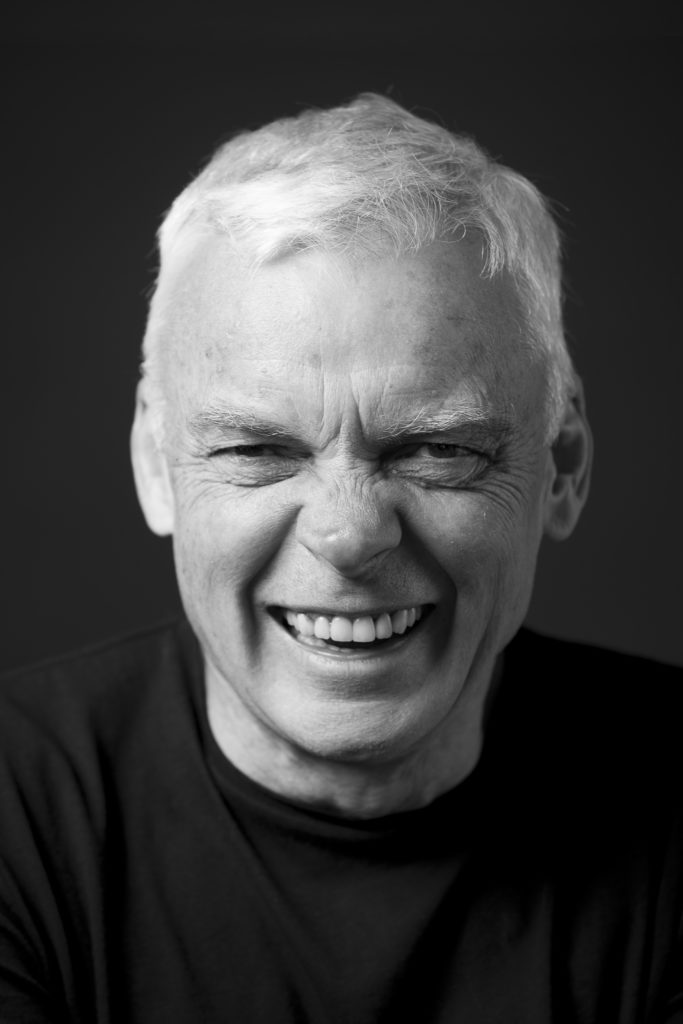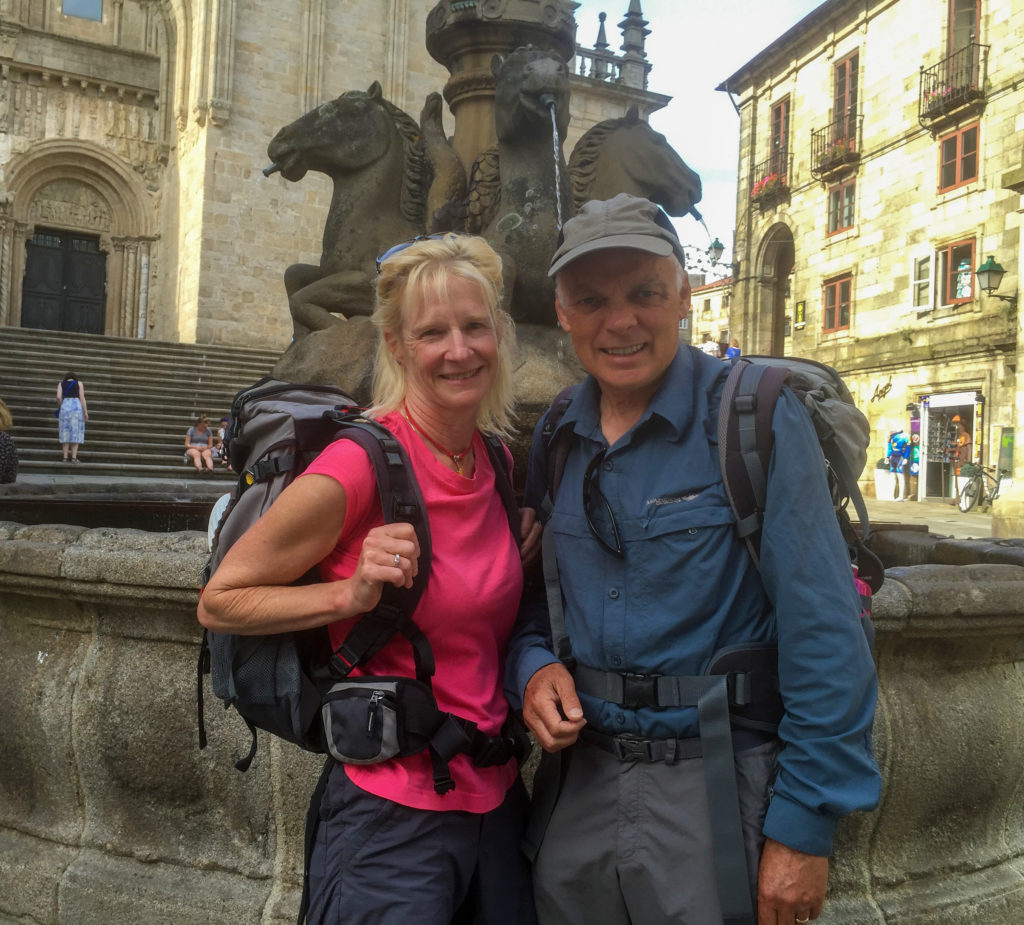

‘Humans should be permanently under development’
— Don Tillman in The Rosie Effect
‘Then I see — no offence, Dad — people like you, in their fifties, still preparing or waiting until later instead of doing what they want to do. Like they’re going to live forever or something.’
— Two Steps Onward
Graeme Simsion is the author of The Rosie Project series, which has sold over six million copies in forty-two languages, and other international bestsellers, including The Best of Adam Sharp and the Two Steps series, which he wrote with his partner, Anne Buist. He and Anne are currently focused on the Menzies Mental Health series: their latest book is The Oasis.
Graeme Simsion was born in Auckland, New Zealand, and attended Owairaka Primary School and Wesley Intermediate School where he was top boy and dux respectively, and garnered material for a short story he’d write fifty years later: Like it Was Yesterday.
At twelve, he migrated with his family to Melbourne, Australia, where his father would become Chief Planner. As discussed in his essay, Rewiring, his experiences at Murrumbeena and Glen Waverley High Schools were, at best, undistinguished. He started his final year at fifteen, a couple of years into broadening his reading tastes beyond hard science fiction but, by his own lights, too immature to study English literature. And he was clearly in the science camp, though very much second to classmate and future Nobel Laureate Tilman Ruff. In a sign of things to come, he unexpectedly topped the school in English.
He completed a science degree at Monash University, majoring in physics, alongside another future Nobel Laureate, climatologist David Karoly. He had just two moments of glory: a computer simulation that refuted some propositions made by Robert May, later President of the Royal Society, and the top mark in Quantum Mechanics B where the exam question was a simple ‘What is the meaning of quantum mechanics?’ In a class of scientists, the future writer had the edge.
His ambition had been to work in theoretical physics—more than that, to be another Einstein or Richard Feynman, discovering something new about the universe through sheer imagination and mathematical brilliance. He had the imagination… It didn’t occur to him that there were jobs in theoretical physics for lesser intellects than Einstein.
He took a job as a computer operator with Colonial Mutual Life Insurance, loading magnetic tapes for a Burroughs 6700 computer that occupied half a floor and had a ten-millionth of the memory of a ten-dollar USB stick. He progressed to programmer, database specialist and team leader and then to independent contracting. After a stint in England working with database design pioneer Richard Barker at a ten-person company, and six months exploring Europe, he returned to Australia to start consulting company Simsion Bowles and Associates. It would never reach the heights of the company he left in England, which became Oracle Europe.
As CEO, Graeme grew Simsion Bowles to some seventy staff in three Australian locations, broadening its offering from his original specialty of data modelling to a range of business and strategic IT services. He continued to undertake consulting assignments himself and delivered courses and seminars around the world, while completing an MBA and graduate qualification in computing.
In 1993, he published his first book, Data Modeling Essentials. It became the best selling reference on the subject, and the third edition, published in 2004 with Graham Witt as co-author, is still in print.
In 1998, he read Joe Queenan’s The Unkindest Cut which describes his adventures making a low-budget feature film. Rather than taking Queenan’s experiences as a warning, he determined to try to emulate him. By now, he was married to psychiatrist Anne Buist, with two young children. Anne was well ahead of him in the novelist stakes, with an agent and two manuscripts in play. Graeme decided to adapt one of them, and with Syd Field’s Screenplay and a half dozen other how-to books as his guides he wrote the screenplay, bought a video camera and starred alongside Anne and a bevy of friends and colleagues in the 98-minute, direct-to-video Voluntary Act. Despite heroic contributions from the director and cinematographer, the result was never going to make it past private screenings. But Graeme had been bitten by the screenwriting bug.
Graeme sold Simsion Bowles to Tier Technologies and completed the handover in 2002. After a four-year detour to undertake a PhD at the University of Melbourne (‘Data Modelling: Description or Design?), he enrolled in the Advanced Diploma of Professional Screenwriting at RMIT, Melbourne. While studying, he made ten short films, and worked on a script originally titled The Face of God, then Natural Selection, The Klara Project and finally, The Rosie Project. The content changed as much as the name, from drama to romantic comedy with Don morphing from physicist to geneticist and Rosie from passive geek to worldly foil with a mission of her own.
The screenplay was shortlisted for the Australian Writers’ Guild Monte Miller Award for an unproduced screenplay, then won the AWG / Inscription award for best unproduced romantic comedy. But it remained unproduced.
In 2010, Graeme had a life-threatening (physical) meltdown (rhabdomyolysis) in a marathon, as described in Three Encounters with the Physical. He took a year off work and school, and accompanied Anne (now Chair of Women’s Mental Health at the University of Melbourne) on a sabbatical in New York and then a three-month walk from central France to Santiago de Compostela on the Camino de Santiago.
On his return to Melbourne, Graeme finally did what an MBA graduate should have done long ago: looked at the world market for screenplays by students and noticed that there wasn’t one. And that most big movies were adaptations of novels. So, he enrolled in novel class (with Michelle Aung Thin and later Toni Jordan as his teachers) and wrote a few short stories for practice (under the tutelage of the late Ania Walwicz). All were published, and Three Encounters with the Physical placed second in The Age Short Story Award. But it was the piece that he wrote in first-year screenwriting that was most pertinent. The Klara Project Phase 1 was a work-up for the screenplay, and runner-up in the Fellowship of Australian Writers Jennifer Burbridge Award. Graeme’s first published fiction demonstrated that Don Tillman’s voice could work on the page as well as the screen. Perhaps better.
He drafted The Rosie Project as a novel in four weeks, spent a further three cleaning it up, and entered it for the Victorian Premier’s Award for an Unpublished Manuscript. The Rosie Project was the 2012 winner and a contract with Text Publishing followed, as did interest from other countries and a deal for the screenplay with Sony Pictures.
With a million dollars in advances on the table, he resolved to give up the independent consulting and teaching he’d been doing and become a full-time writer.
The Rosie Project was a critical and popular success, winning ABIA Book of the Year in for 2013 and being longlisted for the Dublin Impac Literary Award. Graeme followed it with The Rosie Effect a year later, and four years after that, The Rosie Result. The series has since sold over six million copies in forty-two languages. In the meantime, Graeme had written The Best of Adam Sharp and, with Anne, Two Steps Forward, the latter drawing on their walking experiences. Both were international bestsellers, and optioned for movie development.
The Rosie series has been overall well received by the autism community. Graeme does not identify as autistic, but based Don on people he has worked and socialised with rather than clinical descriptions. He is active in amplifying autistic voices through books, events and social media and has spoken at autism conferences and seminars.
He continues to write at a pace of around a book a year, and dips his foot in the screenwriting pond from time to time. His current project is the Menzies Mental Health series in collaboration with Anne: The Glass House was published in 2024 and was an immediate bestseller, and the sequel, The Oasis, was published in February, 2025.
Graeme lives in Melbourne with Anne, and is a frequent traveller, walker, jogger, and drinker of wine and cocktails.
‘Anne and I were walking the Coast-to-Coast trail in England – you know, a bit of tranquillity- and the international offers started coming in. There were silent bids, open auctions, all sorts of stuff going on and maybe fifty publishers across twenty countries, plus agents…The phone signal was hopeless and I’d be in some pub having breakfast and shouting ‘How much? Is that dollars or yen?’ My life changing, but all a bit rude and public. The other walkers were pretty good about it.’
— GCS
‘When I was working in consulting, resume building was a big deal: qualifications, job history, publications and presentations, the whole ‘was instrumental in achieving key business outcomes’. Now it’s all come down to ‘Wrote the Rosie Project.’ Four words, and if it’s not enough to get the gig, nothing else is going to help.’
— GCS
‘Back in NZ, I used to do well in both science and English, and I remember my headmaster calling me in and saying that I’d soon need to make a choice. For me, male, in the heyday of space exploration and the dawn of computing, it was no choice at all. It was almost forty years before I revisited it.’
— GCS
‘For most of my life, I did dream of being a writer, imaging plots, crafting opening sentences in my head. But it was like dreaming of playing in the World Cup or headlining Glastonbury: no substance to it. I didn’t consider myself an aspiring writer until I enrolled in a class and got serious about learning how to do it.’
— GCS
‘The director [of low-budget movie Voluntary Act] was studying film at RMIT and took the movie along to show the class. And then I was summoned in my role as producer to answer questions. It was obvious that the students were unimpressed, and I felt they were being unfair not just to me but their fellow student who’d done an amazing job of directing and editing, given what she had to work with. I said ‘How many movies have you made? Shorts?’ Nada. ‘So, listen to someone who’s got more experience than all of you combined.’ But the teacher was producer Sue Maslin, and she said to them: ‘Most first efforts are unwatchable. This film has all sorts of faults but it kept your attention because the screenwriter knew what they were doing.’ And that was the moment.
— GCS